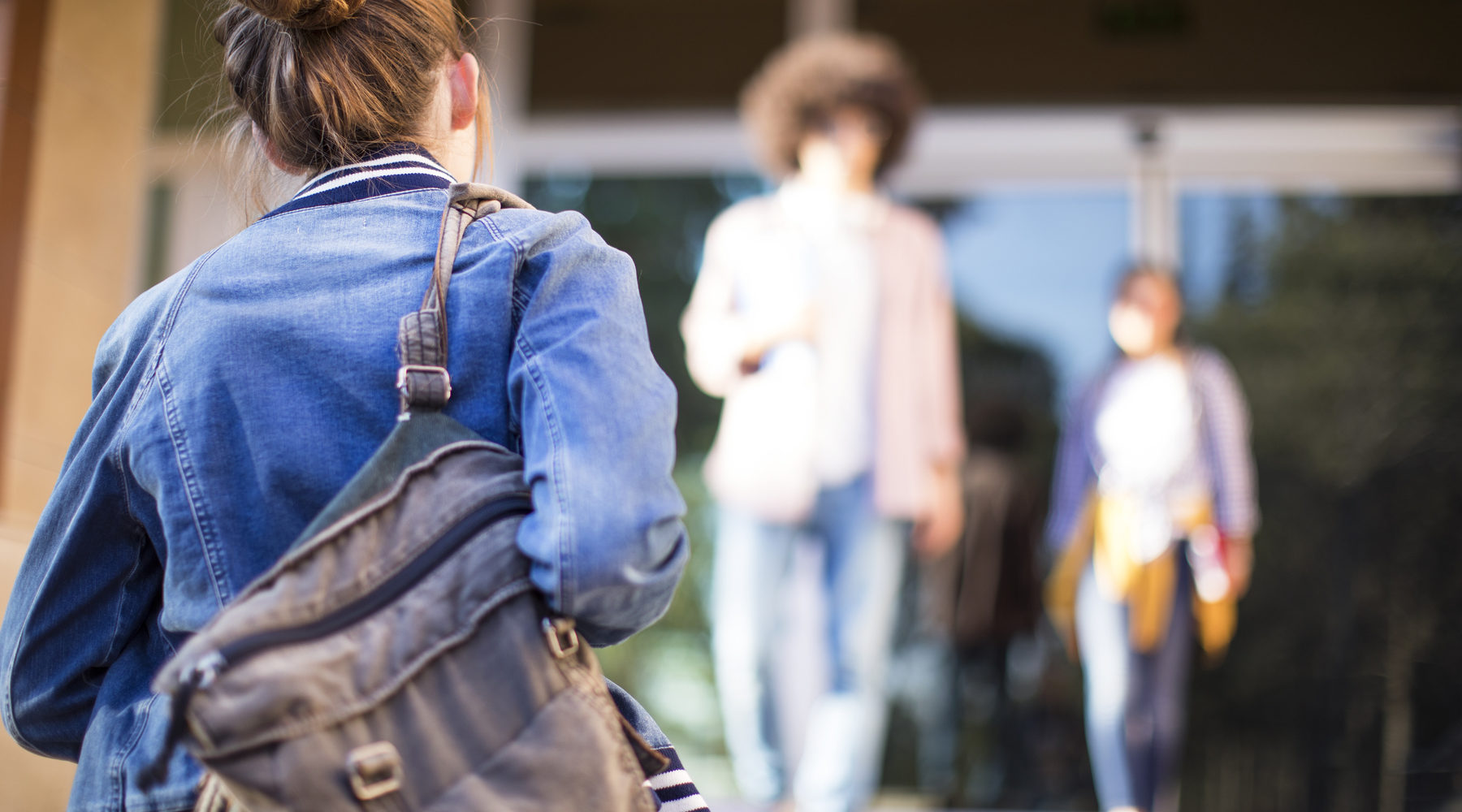
Many Year 12 students have developed amazing skills over the past few months, but they need particular support now they have returned to school-based learning. Peter Hanlon gets advice from the experts on what we can do to help.
Learning away from the classroom and being isolated from their peers has challenged all students, none more so than those in schooling’s vital home stretch. Year 12 can feel overwhelming even without a pandemic, and as they return to a conventional learning environment our most senior secondary students will need more support than ever.
Sarah Rudiger, principal of Beaconhills College’s Pakenham campus, is expecting the full gamut of perspectives from her Year 12s. Yet the self-direction and pro activity their teachers have noted in recent months fills her with optimism for what how 2020 cohort will meet the challenge – and what they’ll take from the experience.
‘The element they won’t have fully realised until they return is just how incredibly resilient they are as a group, what incredible skills they’ve developed during this time,’ Sarah says. ‘This is their normal for Year 12 – this has been their Year 12 experience.
‘We’re seeing some fantastic skills working from home, where they’ve become quite self-directed learners, and are becoming perhaps a little bit more self-disciplined in how they’re approaching their learning and taking responsibility for it.
‘Going into a tertiary setting next year, they will have developed some amazing skills over this time that will perhaps prepare them even better than previous groups may have had the opportunity to.’
Dr Kelly-Ann Allen, senior lecturer in educational psychology and inclusion at Monash University, notes that students have responded to the social and psychological consequences of COVID-19 in a variety of ways, just as the virus impacts people differently.
‘Some students may feel overwhelmed, anxious or even sad,’ Kelly-Ann says. ‘No-one could have predicted how this year would unfold, and this may cause feelings of grief and loss in students who envisaged their final year of school proceeding very differently.’
Through adapting classroom settings via Zoom gatherings and other online platforms, schools and their teachers have worked overtime to ensure students have kept up with curriculum and felt connected through an uncertain time. As ‘normality’ slowly returns, a sense of togetherness will remain at the heart of their learning.
Here are some ideas to support Year 12 students:
Keeping communicating
Sarah Rudiger notes that as the planning that goes into making Year 12 achievable has shifted into overdrive, students must be kept in the loop about any tweaks to programs and curriculum knowing that everything possible is being done to ease their path.
‘Our communication to the kids is incredibly important now – that reassurance that as we continue to map and plan moving forward, that there’s been significant changes to what Year 12 looks like this year, and it’s being reflected in what we’re expecting.
‘There’s an element of being transparent in the way we’re talking through how we approach that journey with them.’
Openness has never been more vital – from teachers, parents, and especially students. Kelly-Ann Allen advocates a proactive approach to reaching out for support, via school well being workers, psychologists, the family GP, or simply offering an ear to vent to.
‘Keep communication channels open with your children by being available to talk, by listening – rather than questioning or solving – and by validating their feelings.’
Don't panic
So much of the unique situation they find themselves in has been beyond the students’ control, but their mindset and output will be helped by focusing on the things they can influence.
‘What they do have control over is how am I going to apply myself to this particular task? What’s the next thing I need to do?’ Sarah says. ‘By taking each individual step, they’ll accomplish the journey.
‘It’s also about the reassurance that it’s going to be okay. When we look at the way Year 12 has been mapped out, there will be plenty of time for students to achieve all of the learning they need to before they get to their exams.’
Strike a balance
Not being consumed by study is another key, and something parents can influence by ensuring their children are eating well, getting enough rest and fitting exercise and a social life into their schedule.
‘As social restrictions loosen, a balance must be struck between academic workload and social life, particularly as students will be seeking to re-engage with friends they have missed during the lockdown,’ Kelly-Ann says.
‘When stress overwhelms a young person, parents and teachers can be rational and reasonable voices of reason. Psychologists call this “reframing irrational thoughts”, and it is highly effective for keeping things in perspective.’
Embrace the possibilities
Some Year 12 rituals – like ‘Schoolies’ – will look different or might not happen at all. Dwelling on what’s changed won’t help, with Sarah Rudiger confident that the elements of the year that will forever be unique to this group could prove a rewarding compensation.
‘In time, they’ll be proud that they were the group who did Year 12 during the COVID-19 pandemic. I have a feeling there will be lots of memories that they will carry with them for many years.’
Click here for the latest updates from the Victorian Curriculum and Assessment Authority on the VCE and the General Assessment Test.
Like this post? Please share using the buttons on this page.
Subscribe‘The element they won’t have fully realised until they return is just how incredibly resilient they are as a group, what incredible skills they’ve developed during this time.’ – Sarah Rudiger, Beaconhills College Pakenham campus principal on the returning Year 12s. Above: Pakenham campus senior school captains, (l-r) Jake Duffus, Chloe Ward, Michaela Franks and Sam Sail.


